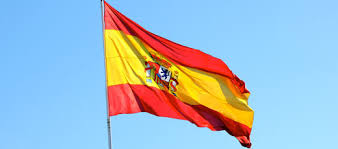Election in Spain left the country in even deeper political uncertainty

- After vote, Spain’s Rajoy faces arduous task
Sunday’s election left Spain mired in even deeper political uncertainty than before, with experts calling it “near impossible” for Prime Minister Mariano Rajoy to find the political bedfellows necessary for a coalition.
The ruling conservative Popular Party, led by Rajoy, won the highest number of votes on Sunday but it only obtained 122 seats out of the 350-seat parliament, falling short of the 176 needed for a parliamentary majority. This means Rajoy will have to partner with the Socialist party, who won 91 seats, or newcomers Podemos and Ciudadanos, who secured 69 and 40 seats respectively, to form a coalition or minority government.
“It’s a real mess, I would say there’s going to be another election in the New Year,” said Colin Chapman, founder and editor-in-chief of think-tank Australian and ASEAN Strategies.
Leaders in Spain haven’t had to form coalitions in recent years since the country has traditionally experienced a two-party rivalry between the Conservatives and Socialists, but the emergence of radical leftist Podemos and centrist pro-European Union Ciudadanos have changed that.
“All of the major parties are going to find it very hard to form some kind of coalition, not just because of their divergent views on the way forward for Spain but because of the electoral mathematics,” explained Andrew Naylor, executive director at Cicero Group. “You need a majority of seats and it’s looking near impossible for two parties to come together to form a majority in parliament based on the exit polls.”
The Socialist party, spearheaded by Pedro Sanchez, is the only way Rajoy can obtain the right numbers to form an alliance but Sanchez’s desire to make the party more leftist makes that unlikely. Spending cuts and tax increases have been implemented under Rajoy’s reign to avoid the fate of Greece, which has received multiple bailouts, and both Sanchez and Podemos have campaigned against further anti-austerity measures.
In a radio interview on Friday, Rajoy publicly rejected the idea of a coalition with Sanchez but has since softened his tone. Speaking on Sunday after the election results, the 60-year old said he would try to form a coalition government.
Rajoy’s next best bet is to go with the Ciudadanos, which Naylor believes is key to resolving the current confusion.
“The Citizens’ party has for the first time emerged at the national level; they will be the kingmakers. They are more centrists so they can form a minority government with the PP if the exit polls are correct.”
Alternatively, the Ciudadanos could enter a three-way coalition with leftists Socialist and Podemos, he added, which would further complicate matters for Rajoy.
Chapman completely dismisses the idea of a PP–Ciudadanos deal, citing two reasons.
“First, Ciudadanos doesn’t want to do it as they feel there’s been too much corruption in [Rajoy’s] government. Secondly, even if they agree, they don’t have the numbers to support a coalition.”
One tactic Rajoy could employ to appeal to leftist voters is to offer a peace offering to the Catalonians, many of whom voted for the Socialists and Podemos, Chapman noted.
“It’s not going to be independence, which is what Catalonia wants, but it could be giving more authority to Barcelona as a city.”
The Spanish constitution doesn’t set a specific deadline to form a government after elections and negotiations for a coalition could go for weeks, if not months, which could hurt Spain’s fiscal recovery.
“This sort of political instability, together with the lack of reform intentions in most electoral manifestos, will reduce the likelihood of significant fiscal consolidation or structural reform after the election. This has the potential to put the sustainability of Spain’s public debt at risk over the medium term,” Societe Generale analysts warned in a note.
The lack of an undisputed majority saw the euro little changed in Asian trading on Monday, with the common currency flat at $1.0868, but it could widen periphery-Bund spreads, according to Mizuho Bank.
Source: CNBC – After vote, Spain’s Rajoy faces arduous task





























